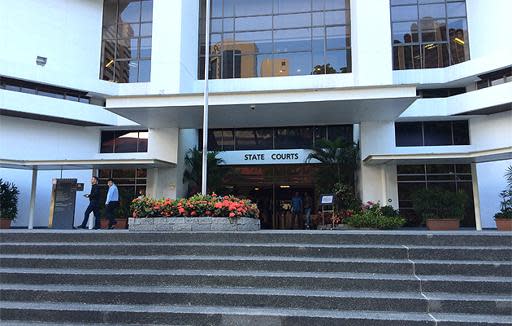Senior Counsel's son jailed four months for NS evasion

A 28-year-old man who defaulted on his national service (NS) obligations for 10 years, 4 months and 13 days was sentenced to four months’ jail on Thursday (2 February).
Jonathan Tan Huai-En, the son of senior lawyer Tan Chee Meng, had pleaded guilty to two charges under the Enlistment Act.
However, the sentence has been given a stay of execution as the younger Tan will be filing an appeal. He has been granted a $10,000 bail.
Tan had moved to Canada with his mother, older sister and younger brother when he was 12. The family had no intention of returning to Singapore and took up Canadian citizenships in 2005.
Tan’s father remained in Singapore due to a lack of work opportunities overseas. Tan also did not renounce his Singapore citizenship.
Between December 2005 and June 2006, three NS registration notices were sent to his Singapore address. It was only in 2009 that Tan’s father informed the Central Manpower Base (CMPB) of the younger Tan’s intention to renounce his citizenship, but was told that Tan would have to fulfill his NS obligations first.
Tan claimed that he realised that his NS obligations had not been resolved only in 2013, when he was told by his mother that he would be arrested if he returned to Singapore to visit his ill grandfather.
He returned in May 2015 and reported to CMPB a day after returning. He enlisted in January 2016, at the age of 26.
Tan’s lawyer Josephine Choo argued that Tan had no intention of returning to Singapore, and that the length of the default did not apply “as a key indicator of culpability”. She added that Tan was not aware that his NS liabilities were unresolved.
It was also argued that Tan, who left the Republic after completing his primary school education, did not benefit from the Singapore citizenship.
However, District Judge Shawn Ho ruled that Tan did gain from his Singapore citizenship given that primary school fees here are completely borne by the state, and in light of the fact that the same education costs at least $43,200 for international students.
Judge Ho added that, beyond the monetary benefits, students in Singapore “receive a first-rate education in a safe, peaceful and conducive learning environment”, and that primary schools here provide a holistic and well-rounded education.
The judge also pointed out Tan had gained an unfair advantage over his peers, given that he obtained two degrees from the University of British Columbia and a career at a multinational company during the period of default.
It was also established that Tan still had substantial ties to Singapore, as Tan’s father was living in Singapore and is their family’s sole breadwinner.
However, Ho did take into account Tan’s testimonials from his NS supervisors when meting out his sentencing. Tan, as a preventive medicine technician, showed “excellent work ethic” and was praised as a “role model”.
For remaining out of Singapore without a valid exit permit, he could have been jailed up to three years and fined up to $10,000.


